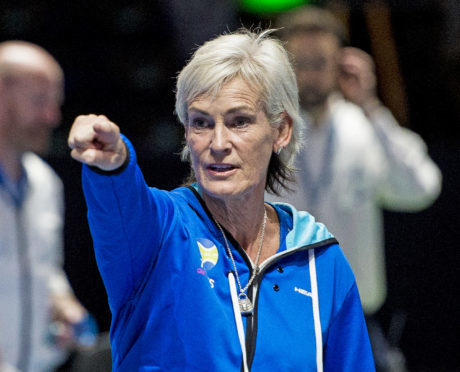Judy Murray is one of the best champions of women’s sport we have in this country.
Her son, Andy, is pretty good too!
So when Judy talks about wanting to see a women’s own category for the BBC Sports Personality of the Year Awards, you know that there will be a strong argument behind it and that it’s worthy of consideration.
I can totally understand where she’s coming from.
Love it or hate it, the awards still make headline news and attract huge viewing figures.
And, the facts speak for themselves, women winners have become rarer in recent years.
There hasn’t been one for a decade.
Judy’s logic is that the profile of female athletes will be raised if they have their own category and that will feed into the coverage they get throughout the year, growing participation levels and financial backing.
I wouldn’t like to see a split happen, though.
An Olympic gold medal is my ultimate goal and, who knows, maybe that would even get me on to a short list for SPOTY.
If I was lucky enough for that to happen, I know that I would want to be up against all the best British athletes of that year, not just the women.
I think there would be a stronger chance that dividing the awards by gender would push women’s sport to the margins rather than centre-stage.
I’ve looked at the female sports stars who have been successful and most of them have been track and field athletes.
Our own Liz McColgan, Fatima Whitbread, Paula Radcliffe and Kelly Holmes have won, while Jessica Ennis-Hill was the runner-up in 2012.
No doubt the fact that they won their gold medals on prime-time terrestrial TV played a part in it. I think that’s a bigger factor than the male/female one.
And you also have to ask the question – has there been a glaring example of someone undeservedly missing out because they were female? I can’t think of anyone.
If a woman won Wimbledon I think they would have a great chance. Same with a woman scoring the winning goal for England in the women’s football World Cup or, fingers crossed, Laura Muir getting gold at the Olympics next summer.
And, if they’re like me, they would want to be up against the men to top the vote.
I had no hesitation in giving my support to Scottish Curling’s campaign to get the financial support it needs to avoid a really bleak future for the sport that has given me so much.
I’ve used my column on several occasions to talk about my worries for the state of grassroots curling when this pandemic is over.
#SaveCurling 🙏🏻
Please support @scottishcurling campaign, with S.I.R.A., for DIRECT Government aid for rinks.@BBCSport @BBCSportScot pic.twitter.com/hH4orIU5VA— Eve Muirhead MBE (@evemuirhead) November 20, 2020
Rinks in proper curling heartlands like Lockerbie and Stranraer aren’t going to open this season.
There are other sports which get far more publicity when it comes to grants and finding a way to work through the Covid restrictions (like golf, ours is a sport where social distance can work) but it feels as if curling’s voice isn’t getting heard as much.
At the moment it’s basically only elite curlers who are getting on the ice.
It would be heart-breaking if some of these traditional rinks were lost and if young and not so young curlers were lost to the sport forever.
Curling will be part of my life long after I’m competing for medals, and I hope the politicians hear our case.


